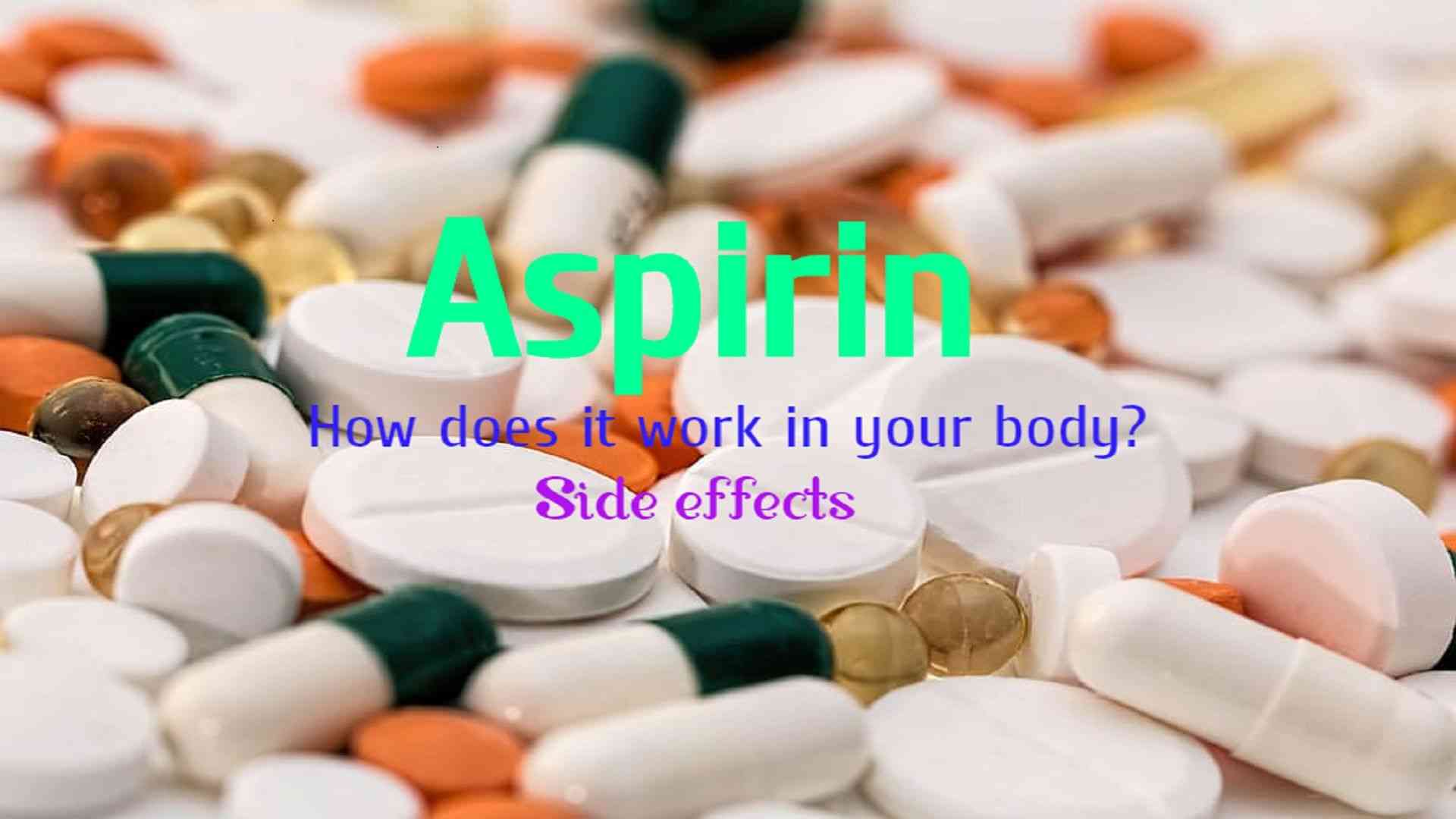Aspirin is the world wide famous medication used to reduce pain, fever,
inflammation etc. It is one of a group of drugs called non-steroidal anti-inflammatory drugs which is also known as acetylsalicylic acid (ASA). It is an old drug. Most probably 2000 years ago the ancient Greeks used the leaves of willow trees and bark to relieve pain and fever.

Leaves of willow trees contain salicylic acid. Then salicylic acid started being produced on an industrial scale at the end of the 19th century. It was found that a single dose of aspirin irreversibly inhibits the normal aggregation of platelets by suppressing the cyclooxygenase. Subsequently, aspirin soon became a widely used painkiller.
How does it work in your body?
ANS:
We will get it in a very simplified view, Okay? Let’s dive:
- Suppose, any part of your body got damaged somehow. Let’s say, your finger is hit by anything.]
[ Note 1: The part of your body damaged has nerve endings that can feel like vibration, heat, light touch, crushing pain and some sort of sensations. And each of these sensations is picked up by different receptors.]
- Afterwards, damaged tissue in your finger starts releasing chemicals such as prostaglandins, histamin etc.
[ Note 2: The part of your body’s cells in the damaged tissue make these chemicals using an enzyme called “ Cyclooxygenase 2 ( or COX-2 ) which rolls up the pain even more stronger. Remember, those prostaglandins ain’t your enemy here. Rather, it’s an important one which helps you to heel your pain by bathing the tissues in a blood fluid through swelling. Even the most interesting matter is : let’s think, if prostaglandins do not send signals to your brain what hell can happen? Hollyshit, your body will burn somehow but you can’t recognize it. So, now you can guess what’s the importance of it right? ]
- Then these chemicals send a strong signal through the nerves. And signals go through -> Arm > Neck > Brain. You know the brain is the place where your mind deciphers those signals to mean. Then the brain says hey hey PAIN PAIN !!! what happens then is you start feeling pain.
[Note 3: All these processes happen in just a second. Amazing nah? If not? You will feel it when you are already …… up! ]
So here’s the play of aspirin. When you swallow aspirin, then it sticks to the COX-2 enzymes for preventing them from making prostaglandins that much.
LESS prostaglandins > LESS signals > Less feeling pain. And that’s why the word “Reduce” comes up here.
Side Effects:
Most common side effects:
- Indigestion
- Nausea
- Heartburn
- History of stomach ulcers
Less common:
- Stomach bleeding [ If you drink alcohol or you’re over 60 ]
- Vomiting
- Worsening asthma symptoms
- Inflammation of the stomach
THANKS and STAY with us. Subscribe to our newsletter to stay updated.


